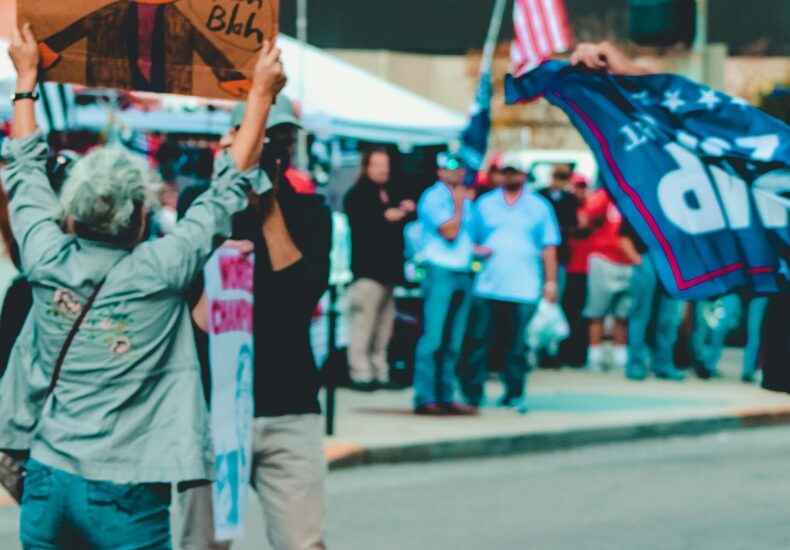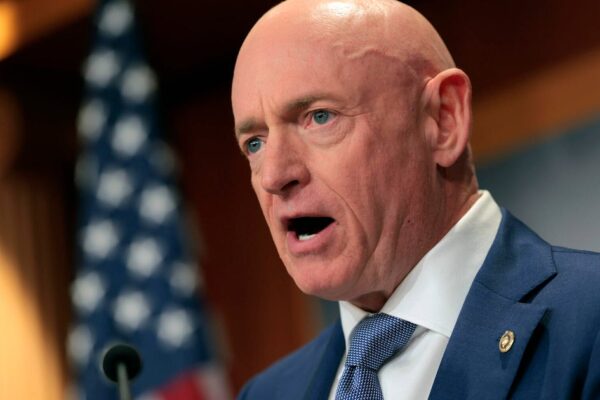
How a Black Friday Boycott in the US Is Aimed at Trump, ICE and Amazon
As Americans gear up for Black Friday and Cyber Monday, two of the biggest shopping days of the year, a growing and massive boycott movement is urging consumers to sit out. Called ‘We Ain’t Buying It’, this campaign seeks to channel economic power into political resistance. Rather than fighting over limited edition deals, this new series of consumer activism is squarely aimed at President Donald Trump, the Immigration and Customs Enforcement (ICE) agency, and corporate behemoths like Amazon as per reports. And understanding its aims, structure and potential impact helps shed light on a modern form of protest rooted in collective economic pressure. What is ‘We Ain’t Buying It’ Campaign? The ‘We Ain’t Buying It’ campaign was launched by a coalition of grassroots groups including Black Voters Matter, Indivisible, 50501, Until Freedom, and the Working Families Party, many of which have been active in past protests, especially under the No Kings movement. Mainly, the boycott calls on Americans to avoid shopping at Amazon, Target, and Home Depot during Thanksgiving weekend, from Thanksgiving Day through Cyber Monday. Moreover, organisers argue that these companies are complicit in supporting policies that align with authoritarianism reportedly namely, Trump’s anti immigration agenda and rollback of diversity, equity, and inclusion (DEI) initiatives. Specifically, Amazon is targeted for what organisers call its alleged financial alignment with Trump, including earlier donations to his inaugural fund and benefiting from corporate tax cuts. Home Depot is singled out because ICE has reportedly carried out immigration enforcement near or on its properties, according to protestors. Target, though, is being boycotted for rolling back DEI commitments, a move that activists say undermines progress on inclusion. The boycott strategy is not limited to just skipping purchases it seems. According to sources, on Thanksgiving, supporters are encouraged to put their wallets aside entirely with the ‘don’t spend a dime, spend time with your family,’ as campaign co-founder LaTosha Brown of Black Voters Matter put it. Saturday is about supporting local and community businesses. Sunday focuses on mutual aid, and Cyber Monday is being called a ‘cyber shutdown’ which means a day without online shopping. READ MORE: DOGE Shutdown: Did the Clash Between Trump and Musk Doom the Department? The Goals, Challenges and Power of the Boycott The organisers behind ‘We Ain’t Buying It’ view the boycott not just as a protest against individual companies, but as part of a larger civil resistance movement of sorts against what they describe as an authoritarian turn under Trump. So by redirecting their spending, participants are meant to reclaim economic agency and support values they believe are under threat. As Brown has said, ‘our money gives us choice . we can make choices to demand better.’ And this is not a one off protest. The campaign is designed to be part of a relay race of actions like mass mobilisations like No Kings protests, local organising, mutual aid, and other forms of consumer activism are all part of a broader strategy to sustain pressure. When assessing whether this kind of boycott ‘works,’ experts are cautious. According to Nien-hê Hsieh, a professor of business administration at Harvard, the strength of the movement lies less in its ability to dent corporate sales and more in its capacity to draw attention and spotlight the companies involved. Indeed, similar consumer activism campaigns have existed for decades for climate causes, labour rights, overconsumption especially around Black Friday. And while such actions may not immediately force a change in corporate policy, they can galvanise public debate and bring visibility to issues that might otherwise stay marginal. Still, some critics argue that unless the boycott is sustained, its effect could be largely symbolic or localized. Emily E. L. B. Twarog, a labour professor, notes that large corporations like Amazon or Target are accustomed to criticism and may weather short-term boycotts. However, Paul Sergius Koku, a business professor, argues that for economic activism to truly shift practices, it needs long term commitment. Hence, for a boycott to change corporate behaviour, people must see continued value in participating even if it means paying slightly more or accepting inconvenience.
https://www.ibtimes.co.uk/how-black-friday-boycott-us-aimed-trump-ice-amazon-1757863
You may also like
延伸阅读
You may be interested
Globe bets on prepaid fiber, sets expansion
No content was provided to convert. Please provide the text...
Bragging rights up as Samal makes 5150 debut
A stellar Open division field will be shooting for the...
DigiPlus launches P1-M surety bond program
MANILA, Philippines — DigiPlus Interactive Corp. has partnered with Philippine...
 The New York Times
The New York Times
- F.B.I. Raids Home of L.A.U.S.D. Chief Alberto Carvalho and School District Offices 2026 年 2 月 25 日 Shawn Hubler, Dana Goldstein and Sarah Mervosh
- Former Nebraska Sen. Bob Kerrey Resigns From Monolith Amid Epstein Emails 2026 年 2 月 25 日 Sonia A. Rao
- Larry Summers Will Resign From Harvard After Jeffrey Epstein Revelations 2026 年 2 月 25 日 Mark Arsenault
- Trump Says Tech Firms Should Pay More for Electricity 2026 年 2 月 25 日 Brad Plumer
- Best and Worst Moments From Trump’s State of the Union Address 2026 年 2 月 25 日 New York Times Opinion
- In N.C. Senate Race, Democrats Bet Roy Cooper Can Beat Trump’s Endorsement 2026 年 2 月 25 日 Eduardo Medina
- Epstein Files Are Missing Records About Woman Who Made Claim Against Trump 2026 年 2 月 25 日 Mike Baker and Michael Gold
- Texas Gov. Greg Abbott Spent Millions on Attack Ads Against Jasmine Crockett 2026 年 2 月 25 日 J. David Goodman
- Inside Nicolás Maduro’s Last Days as Venezuela’s Leader 2026 年 2 月 25 日 Anatoly Kurmanaev, Mariana Martínez and Tyler Pager
- Germany’s Leader Merz Delivers a Blunt Warning to China on Trade 2026 年 2 月 25 日 David Pierson and Jim Tankersley



Leave a Reply